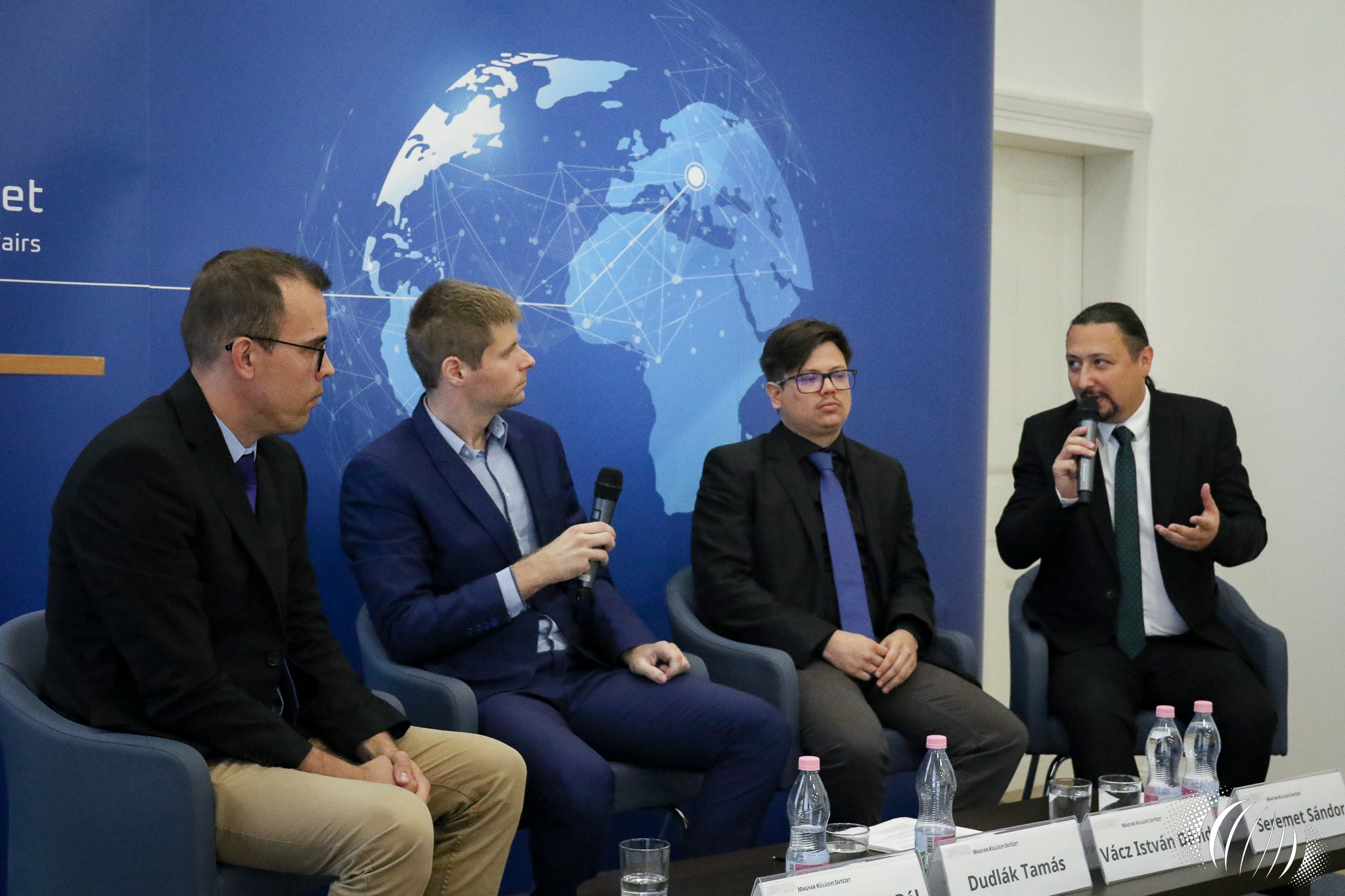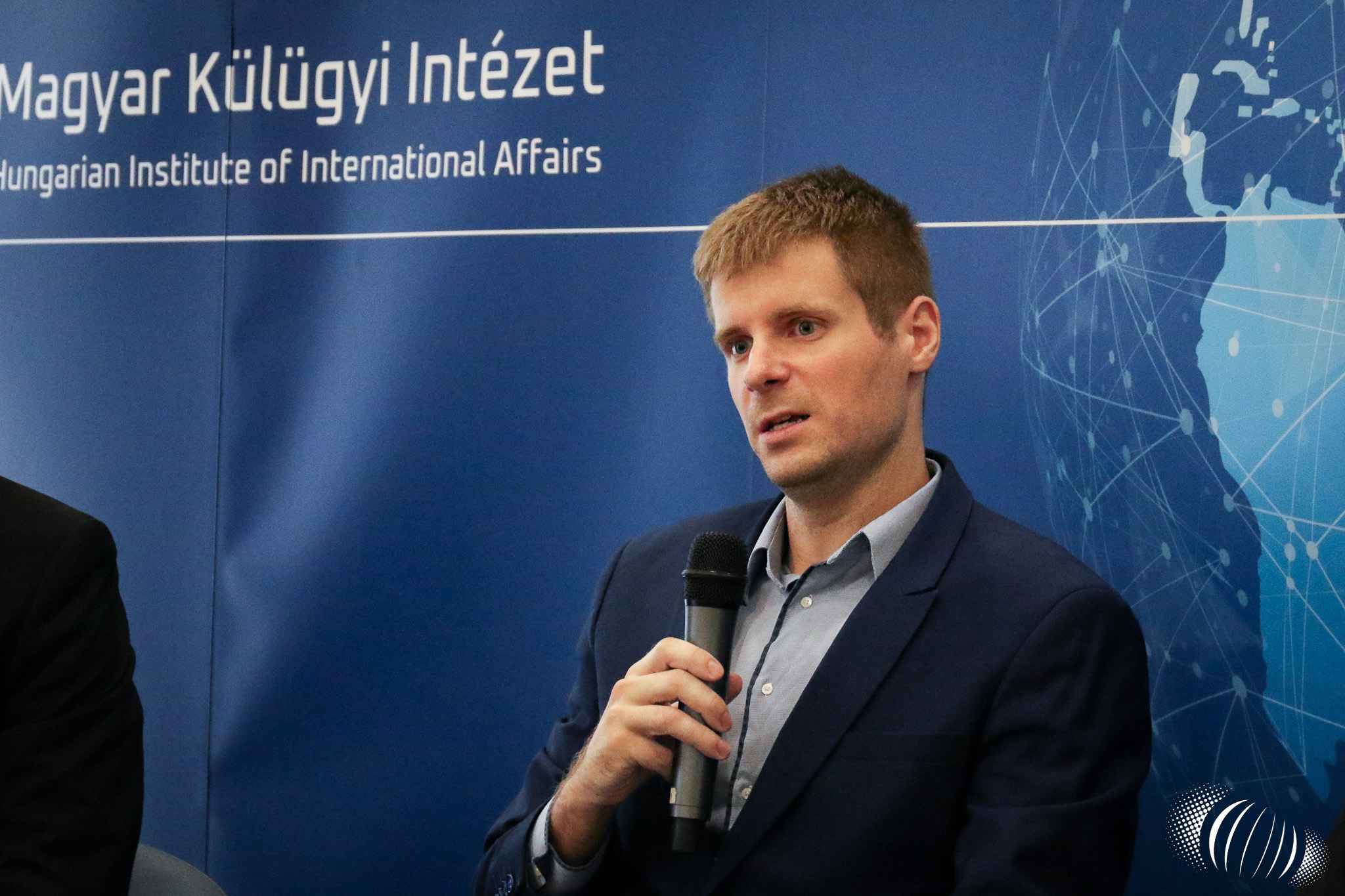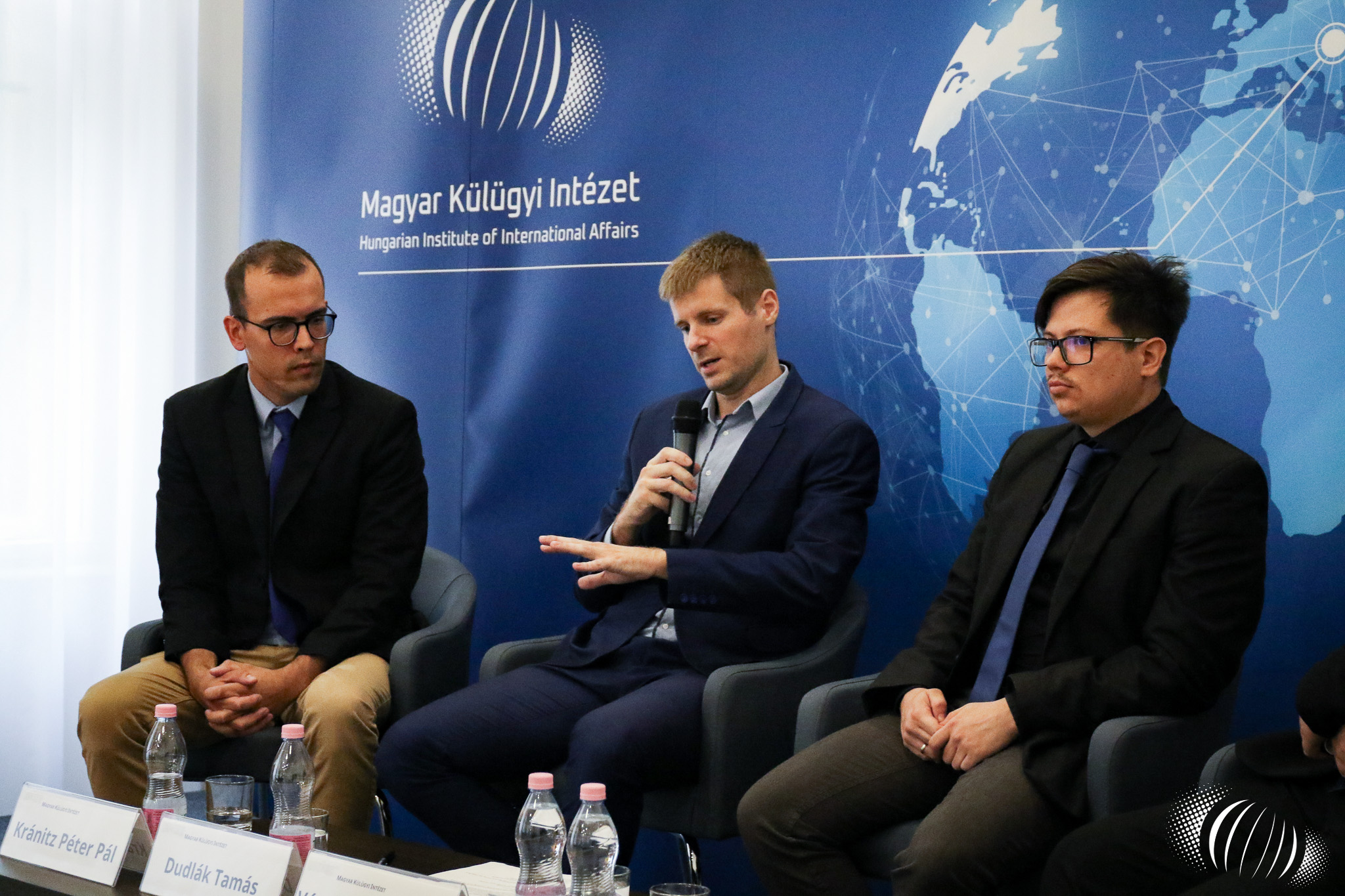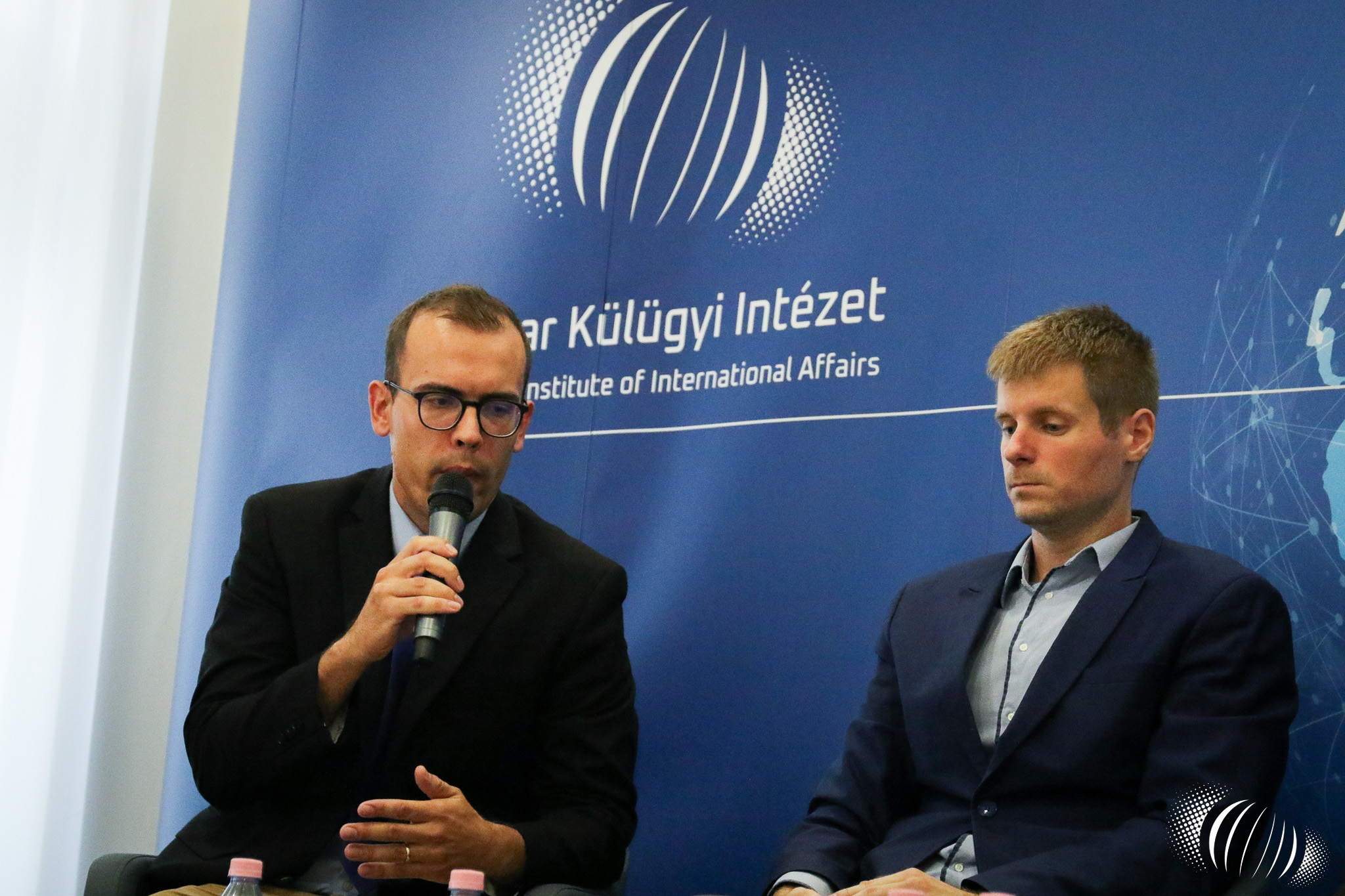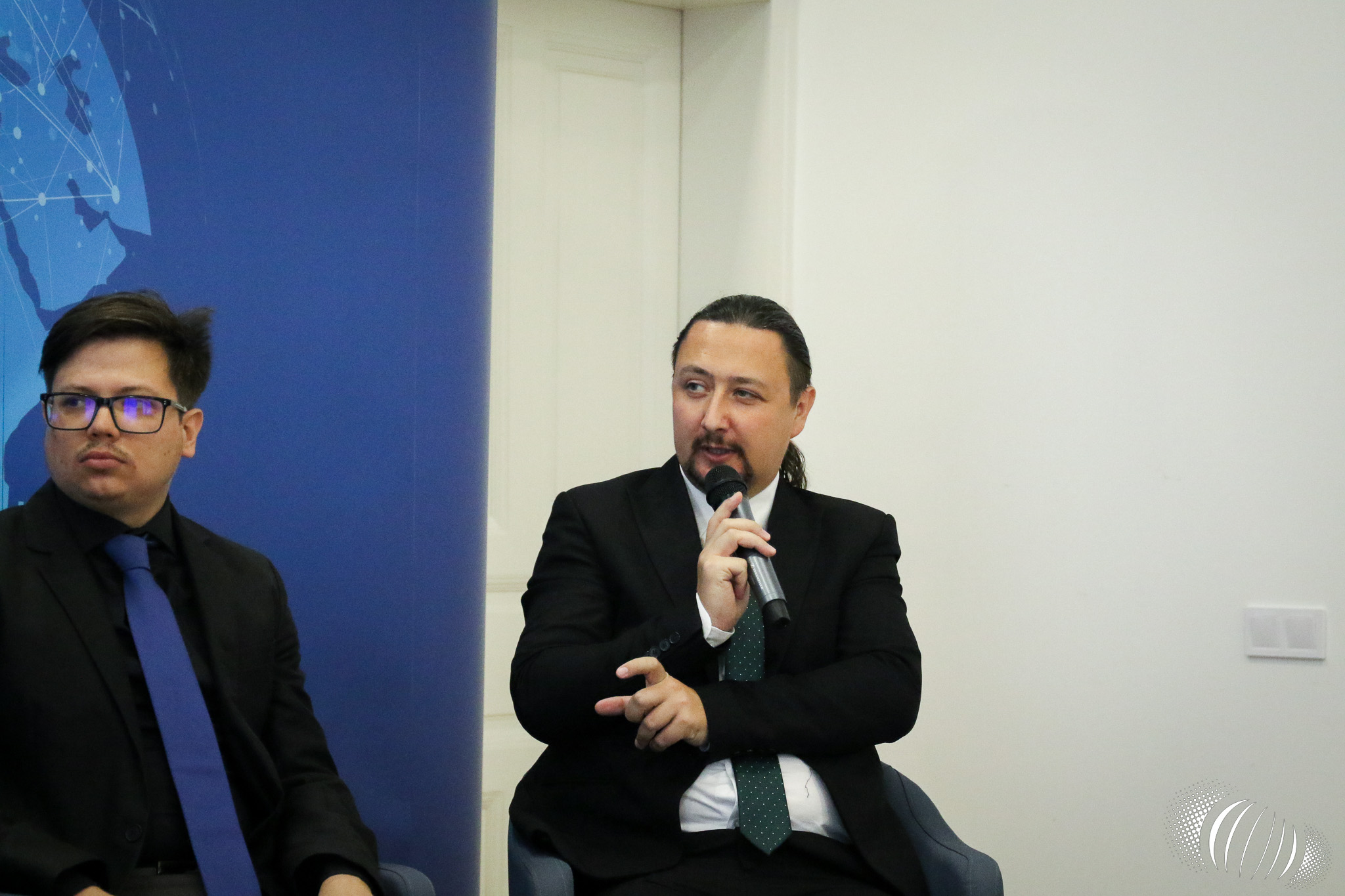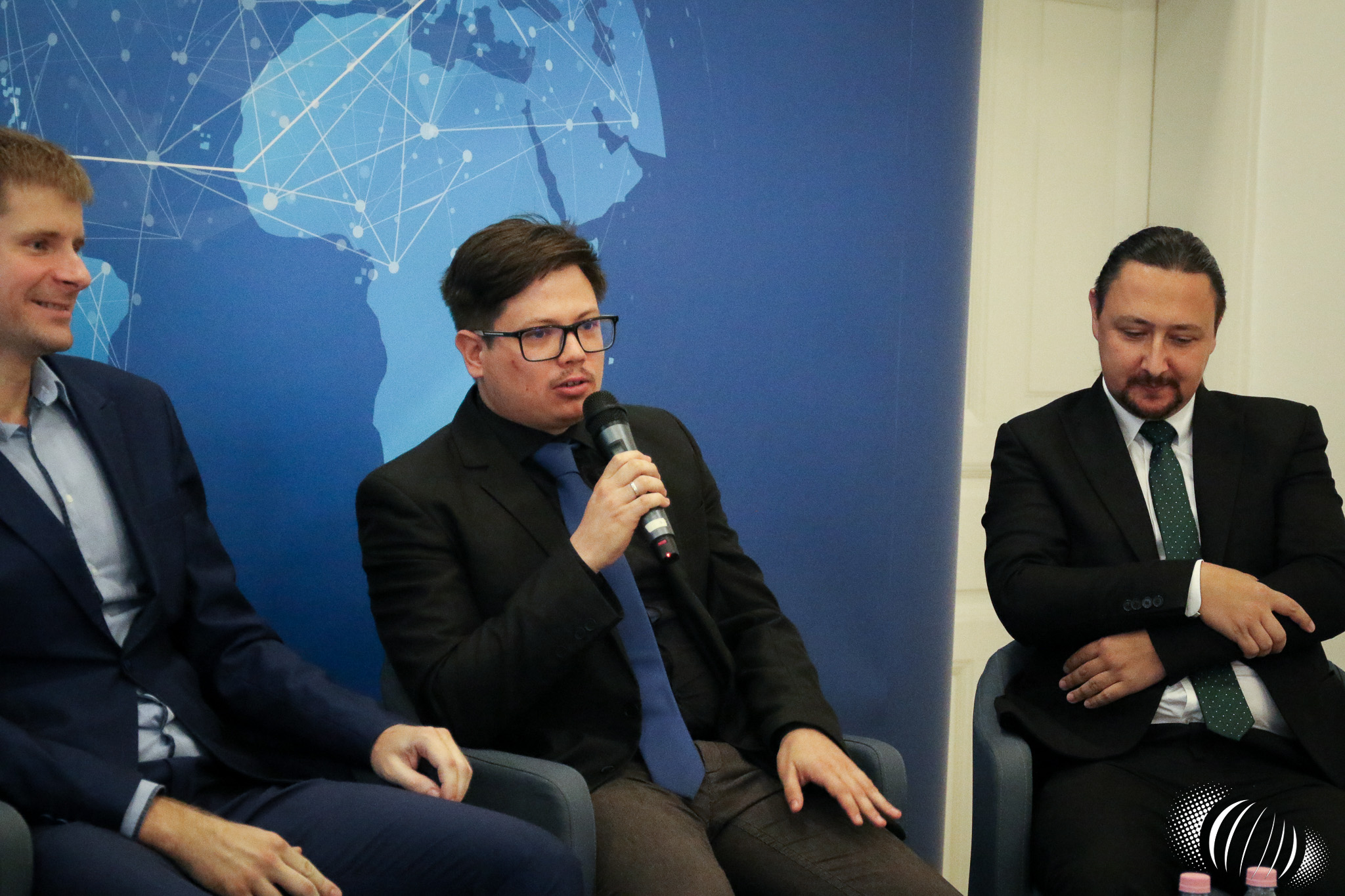Israel and Iran’s Caucasus Policy from the Perspective of Hungarian Foreign Policy
On September 12, 2024, the Hungarian Institute of International Affairs organized a roundtable discussion entitled Israel and Iran’s Caucasus Policy from the Perspective of Hungarian Foreign Policy. The event featured Tamás Dudlák, Research Fellow at the Center for Contemporary Arab Studies at ELTE; István Dávid Vácz, PhD candidate at ELTE and alumnus of the HIIA Future Leaders Program; and Péter Pál Kránitz, Senior Research Fellow of HIIA. The discussion was moderated by Sándor Seremet, Senior Research Fellow of HIIA.
Tamás Dudlák highlighted that in this period of geopolitical transition, the South Caucasus is re-integrating into the Middle Eastern political system. However, instead of a tightly knit power structure, a more situational network of relationships is expected to emerge in the region.
For Hungary, the security issues of the Caucasus are closely tied to energy security and relationships with international partners. Péter Pál Kránitz pointed out that the Azerbaijani-Israeli partnerships deserve special attention, as these collaborations could have a long-term impact on Hungary’s energy markets, particularly concerning gas supplies from the Eastern Mediterranean.
István Dávid Vácz emphasized that the potential autonomy aspirations of the Azerbaijani minority in Iran could become a significant source of conflict between Iran and Azerbaijan. Additionally, Vácz noted that Azerbaijan’s pragmatic foreign policy – which strengthens ties with Israel and Turkey while not entirely severing relations with Iran – is dynamically shaping the region’s power dynamics.

